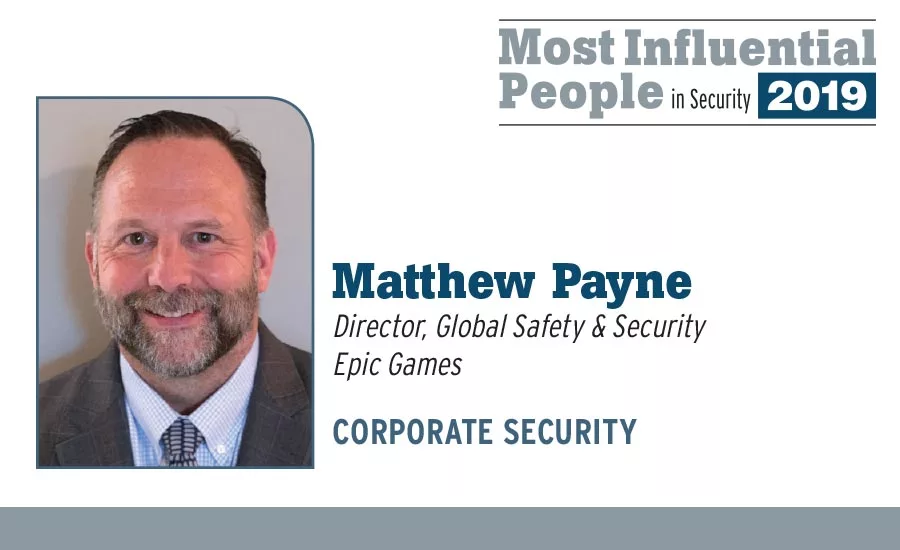Security's Most Influential People in Security 2019 - Matthew Payne
Director, Global Safety & Security Epic Games

Matt Payne is Director, Global Security & Safety at Epic Games, Inc., a U.S. video game and software development company based in Cary, N.C. He is the company’s first physical security officer.
At Epic Games, Payne is employing an intelligence-based approach to security that allows for flexibility and provides action based off the needs of company locations, depending on surroundings, people, conditions and the culture. Payne created an email address and internal logo for employees to report security events to him.
Epic Games host large gaming events all over the world, and Payne is responsible for managing the safety and security of the events. He designs safety and security playbooks for each event and pushes the data via an app to all Epic team members’ phones, so all numbers and items are one click away.
Outside of Epic, Payne is pushing an E-sports and Gaming group, where he is engaging with all similar type companies to bring together their safety and security leaders to discuss challenges and build partnerships.
Payne has mentored many people throughout his career, including a G4S security officer, who Payne worked with on professionalism, dress, conversation and more, which led to the individual being hired on the Paypal corporate security team.
“I am most proud of being able to mentor those who are entering the security field or are working on professional development,” Payne says. “One of the critical items I emphasize is to build a broad array of contacts that reach across many disciplines, industries and professionals. This is something everyone needs to have handy, and my rule of thumb is nothing should be more than two phone calls away.”
Payne is a former Combat Control with the U.S. Air Force, in addition to working several years on a Joint Task Force with the FBI.
“I received great advice when I made the transition from law enforcement to the private sector,” Payne says, “which was ‘Don’t be a security professional who tries to know business, be a business professional who is also a security professional.’ Know your business, sit with leaders and hear what they have to say. Learn each department’s functions and how those people do their jobs. As you learn from them, you will find and tease out different issues they face or security gaps and vulnerabilities. By learning the business, you will have a much better understanding of the risks to address security concerns with new and innovative ideas.”
Looking for a reprint of this article?
From high-res PDFs to custom plaques, order your copy today!






